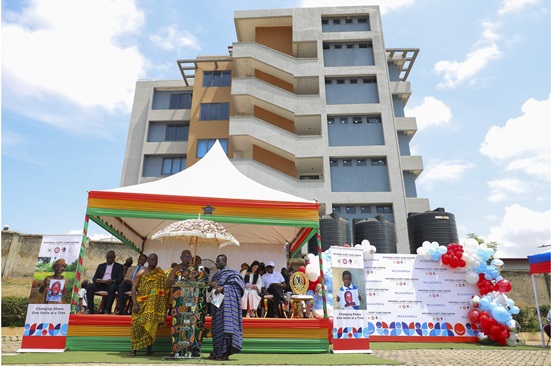KATH Inaugurates State-of-the-Art Cleft Center to Boost Specialized Pediatric Care

A new chapter in Ghana’s healthcare delivery began on Wednesday, with the commissioning of a cutting-edge National Cleft Center at the Komfo Anokye Teaching Hospital (KATH) in Kumasi.
The facility, the first of its kind in the country, is set to provide advanced treatment for children and adults born with cleft lip and palate deformities.

The inauguration ceremony was led by the Ashanti Regional Minister, Dr. Frank Amoakohene, who hailed the project as a transformative step in bridging the gap in specialist healthcare for vulnerable populations.

The initiative is a collaboration among Smile Cleft, the Ministry of Health, KATH, and the Ghana Cleft Foundation.
“This center is a game-changer. It brings quality, affordable, and timely cleft care closer to families who previously had to travel long distances or bear the cost of overseas treatment,” Dr. Amoakohene stated.
Designed to serve as both a treatment and training hub, the center is equipped to deliver a range of services—from surgical repairs and speech therapy to counseling and follow-up care.
Medical personnel also see it as a platform for research and professional development in craniofacial treatment.
Stakeholders believe the center’s establishment will dramatically reduce the stigma and medical complications associated with cleft conditions, especially in underserved communities.
Each year, hundreds of Ghanaian children are born with cleft deformities—many of whom go untreated due to financial or geographical barriers.
Dr. Amoakohene reiterated the government’s commitment to decentralizing specialist health services, ensuring that no Ghanaian is denied care because of where they live.
“This facility does not just fix smiles—it restores confidence and offers affected individuals a chance at a normal life. It’s a symbol of what strategic partnerships and targeted investment can achieve,” he added.
With its launch, the National Cleft Center places Ghana among a growing number of countries offering specialized, multidisciplinary care for cleft conditions within the public healthcare system.
The facility is now open to patients across the country, ushering in renewed hope for thousands of families.
Source: David Afum




